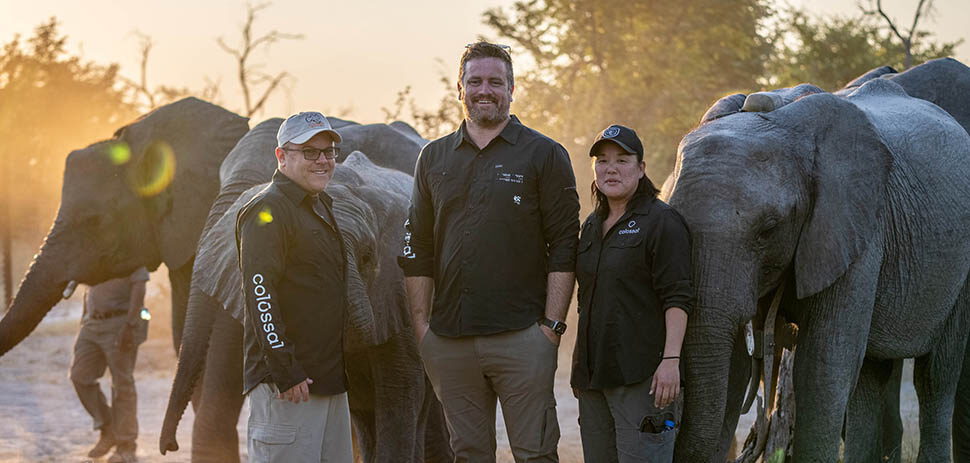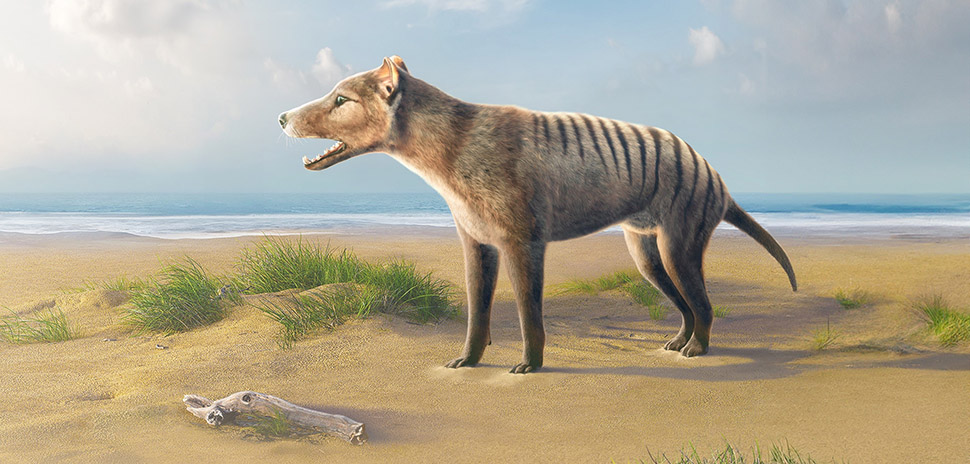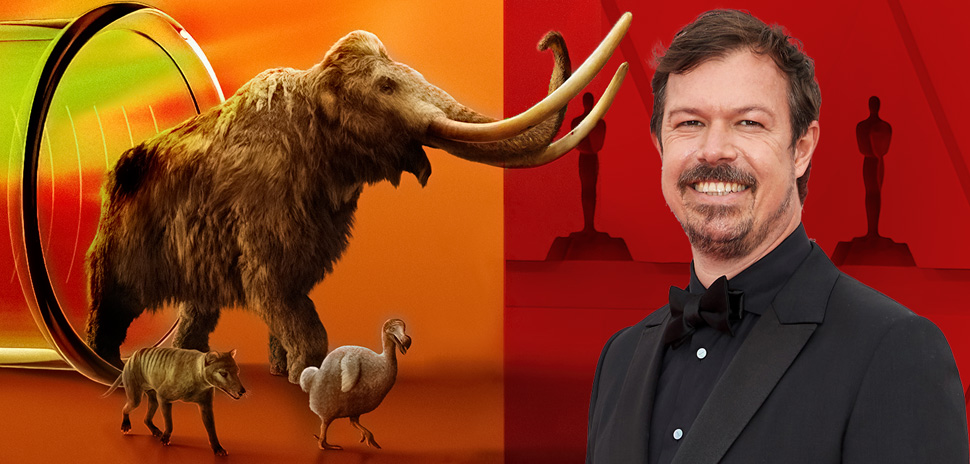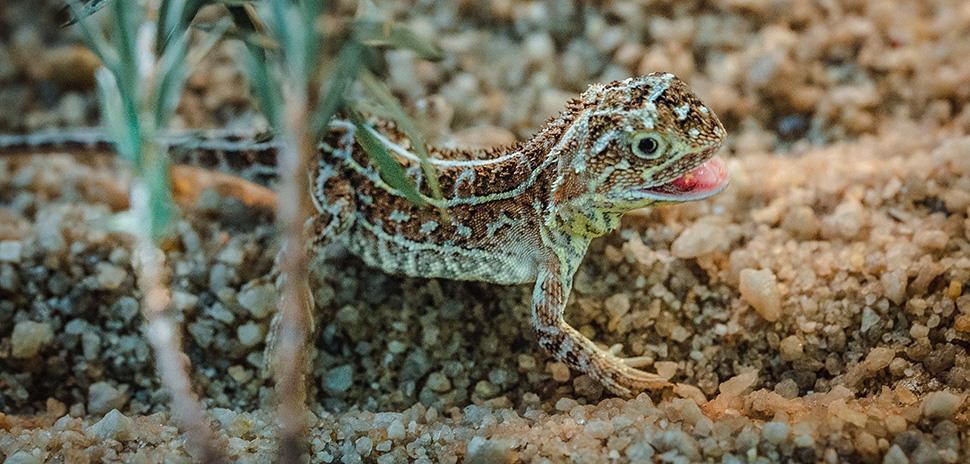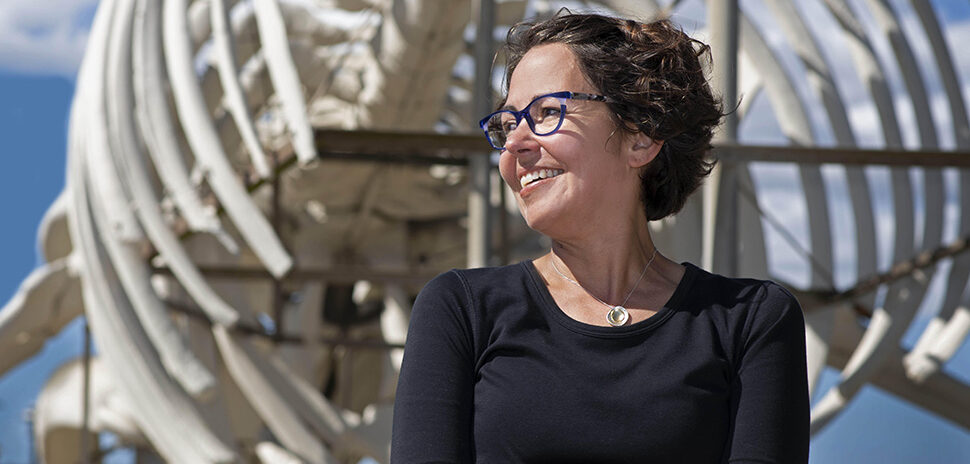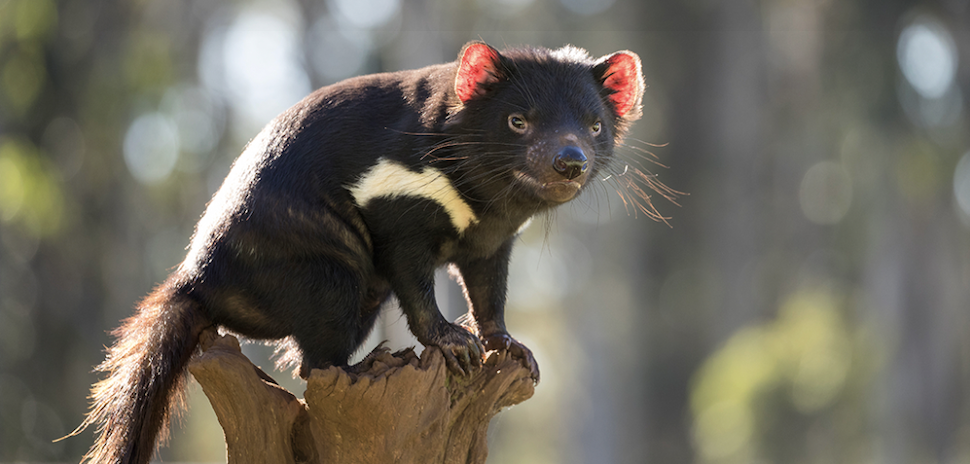The world’s first “de-extinction” company, Dallas-based Colossal Biosciences, has formed The Colossal Foundation, announcing $50 million in new funding and the initial flagship projects in its conservation agenda—including Colossal Biovault, “the world’s largest distributed biobanking initiative.”
That biobanking effort is a hot topic these days. According to The Guardian, an international team of experts recently proposed to put a vault on the Moon filled with preserved bio-samples of our world’s most at-risk creatures. Colossal’s chief science officer, Beth Shapiro, was interviewed for the story.
The Colossal Foundation is a North Texas-based 501(c)(3) focused on the real-world application of Colossal-developed science and technology innovations. It will focus on partner-led conservation initiatives where Colossal’s science and technologies can quickly revolutionize wildlife conservation and ecosystem restoration, the organization said.
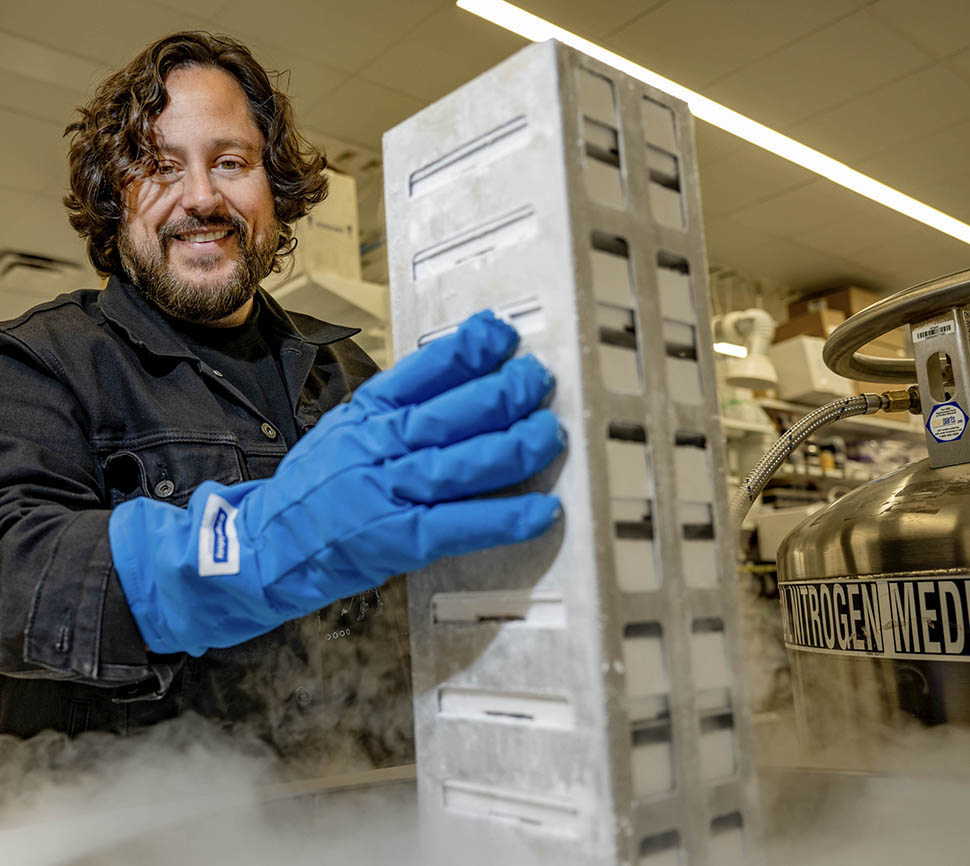
Colossal co-founder and CEO Ben Lamm. [Photo: Colossal]
“We started The Colossal Foundation to ensure that we are delivering our technology solutions into the hands of those who can benefit the most,” Dallas-based Colossal co-founder and CEO Ben Lamm said in a statement. “The Colossal Foundation further expands our capacity to get our technologies into the world as fast as possible and brings new, much-needed funding to conservation while empowering the modernization of the tools. We envision a future where conservation efforts are proactive, innovative, and impactful because of the application of these emerging technologies.”
Colossal previously announced plans to “de-extinct” the woolly mammoth via an elephant-mammoth hybrid, as well as to bring back the Tasmanian tiger. and the famously extinct dodo bird. Its investors include everyone from the CIA to Paris Hilton to a long list of VC firms and billionaires like tech investor and USIT Chairman Thomas Tull.
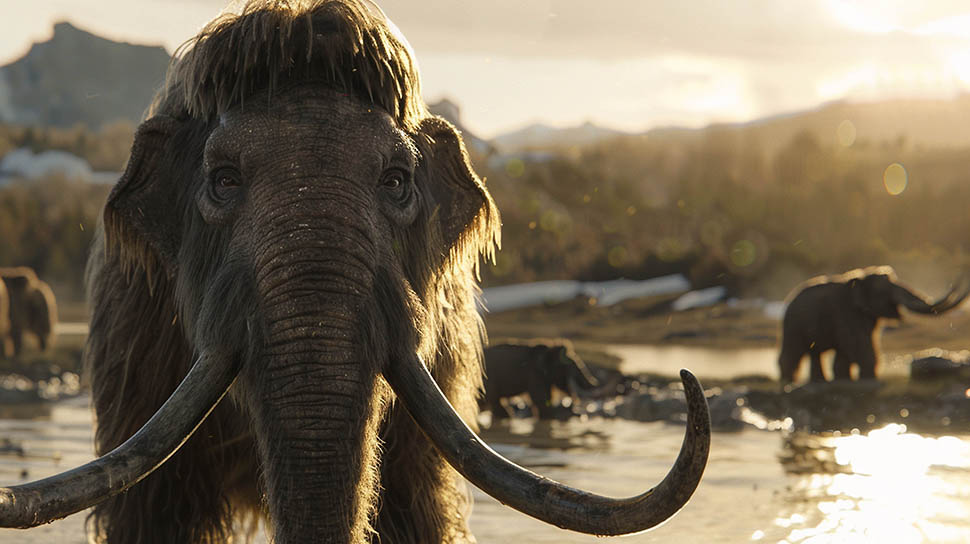
Colossal previously announced plans to “de-extinct” the woolly mammoth. [Illustration: Colossal]
The foundation’s initial focus
Colossal said that as part of a 10-year conservation strategic plan developed with its conservation partners, the Colossal Foundation will fund and deploy new technologies in partnership with local communities.
It said that the foundation, in partnership with local stakeholders, will select species where the technologies can be best deployed, and then co-create initiatives with local partners for the conservation of the species. The foundation said that together the organizations will focus on species that can benefit from genetic rescue, biobanking, and the creation and use of reference genomes.
Colossal said that additional focus will be on accelerating species adaptation, creating genetic resilience through biotechnology, finding lost species, and utilizing technological advancements including AI, machine learning, and computational biology to enhance our understanding of animal behavior and ecosystems.

Colossal Chief Science Officer Beth Shapiro, PhD [Photo: Colossal]
Colossal said that the foundation is launching with three core programmatic focuses:
- Saving today’s at-risk species: Partnering with conservation efforts where Colossal’s technology-based de-extinction innovations can bring genetic rescue solutions to conservation rescue species. In doing so the Colossal Foundation plans to build a model for integrating cutting-edge biotechnology technology with conservation efforts to bring back species that have been driven to the brink of extinction. The long-term goal is to create a toolkit approach to simplify genetic rescue for conservationists. Initial projects include efforts focused on the Vaquita, Northern White and Sumatran Rhinos, Red Wolf, Northern Quoll, Ivory Billed Woodpecker, and Pink Pigeon.
- R&D for Conservation: Colossal will partner to fund and deploy technologies that leverage artificial intelligence, machine learning, and computational biology to enhance an understanding of animal behavior and ecosystems, and pave the way for innovative, data-driven approaches to preventing extinction with conservation partners. Current projects include the Colossal drone-based anomaly detection system used by Save the Elephants, a vaquita acoustic monitoring program, and an AI-enabled orphaned elephant monitoring system leveraged by Elephant Havens in Botswana.
- Ensuring Tomorrow’s Biodiversity: Developing a distributed genetic repository of species (a biobank) which can act as an insurance policy against unforeseen threats to biodiversity and provide a safety net for species facing extinction. The focus will be on those species closest to extinction to ensure their genetic diversity is not lost and the potential to bring them back, should the worst happen, remains. Current projects include those focused on a partnership with the Zoos Victoria on the Victorian Grassland Earless Dragon, with Re:wild on the Top 25 Most Wanted Lost Species, and with the IUCN SSC’s Pigeon and Dove Specialist Group on the Tooth-billed Pigeon.
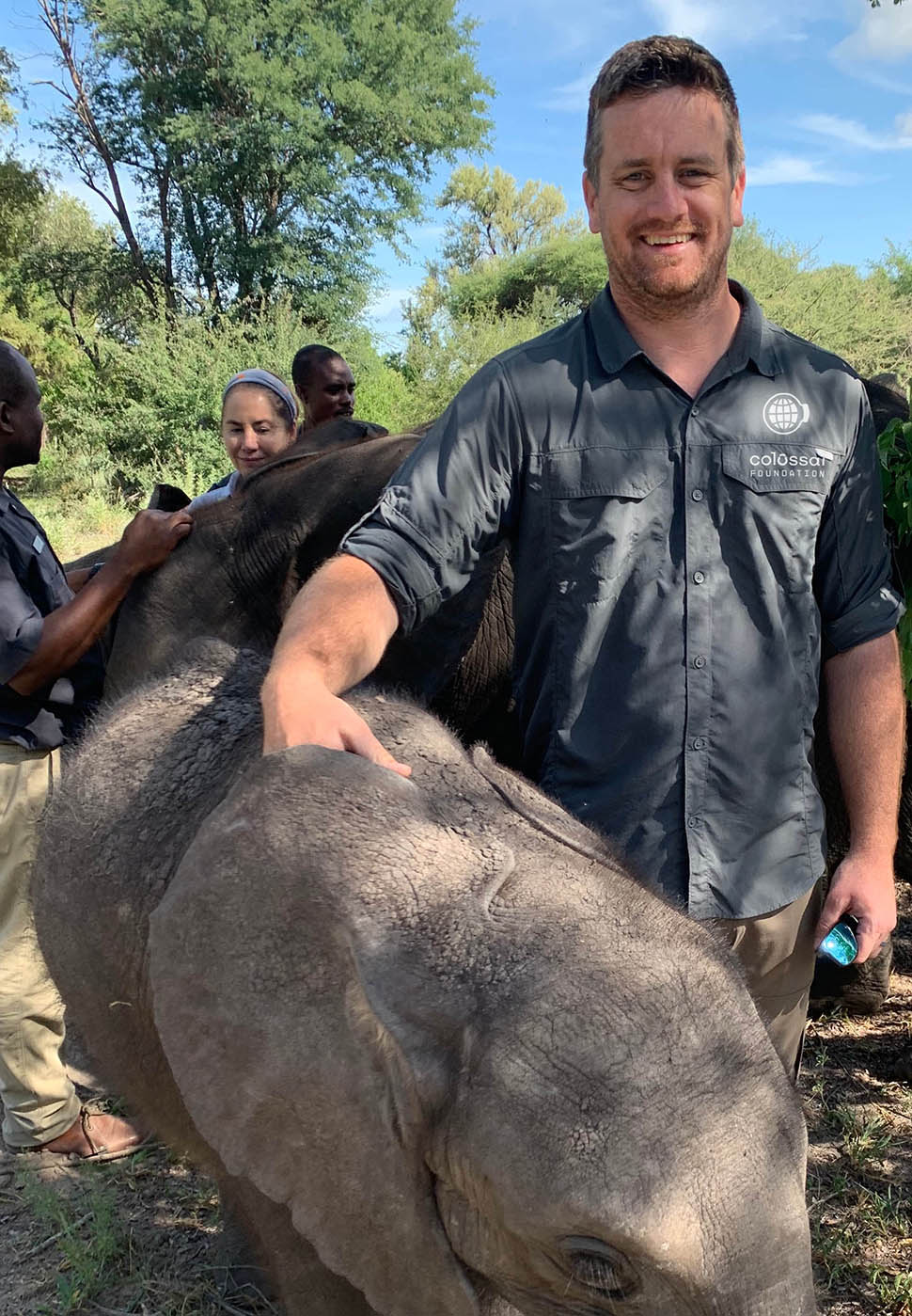
The foundation’s Matt James with a friend in the wild. [Photo: Colossal]
“The short story is that conservation needs powerful and committed allies,” Colossal Foundation Executive Director Matt James said in a statement. “We are here to be that ally. There is no more time to wait to protect the species we have on Earth today if we want to make sure they are still here in 10, 50 and 500 years.”
The foundation announced four new conservation projects today:
Saving vaquitas in the Gulf of California
Vaquitas, a porpoise endemic to the Sea of Cortez/Gulf of California in Baja California, Mexico and the smallest of all living cetaceans, is on the brink of extinction. As of May 2023, only between 10 and 13 vaquitas remain. Colossal said the loss of the vaquita could be a harbinger of further declines in the Gulf’s marine ecosystems, and the extinction of the vaquita would represent a cultural and symbolic loss.
Colossal, in partnership with the Vaquita Monitoring Group and in support of the Mexican government’s La Comisión Nacional de Áreas Naturales Protegidas (CONANP), said it believes that there are low-impact technical solutions that can be used to safely biobank the existing animals while also helping to grow the vaquita population. Colossal has additional details on the projects supporting the vaquita that will be announced at a later date.
Jesus Francisco Soto Rosas, leader of the Vaquita Marina Visual Monitoring Team, said that the vaquita “occupies a crucial place in our community.” As an endemic and endangered species, it requires special care and attention to ensure its conservation, he noted and added that the goal is to “transform our environment into a favorable and sustainable habitat.”
He expressed hope for the future.
“My vision regarding the protection of this species is one of great dedication, because like all living beings, the vaquita deserves to live in peace, without factors that threaten its survival, Sota Rosas said. “It is essential to provide them with a well-preserved and adequate environment, and to have a community committed to making positive changes in the face of environmental challenges. The commitment of each member of our team reflects the strength and intention with which we work daily.”
He also said that outside support, like that of Colossal, can turn the tide.
“Establishing collaborations and receiving support is vital to maintaining our strength, as these bonds reinforce our efforts and allow us to make progress in areas where we were previously stalled,” Sota Rosa said. “Resources for materials and supplies are essential, but as we move forward, new needs arise. With the support of the Colossal Foundation, we will be able to continue operating without interruptions and work throughout the year, maximizing our chances of success.”
Bolstering the Sumatran Rhino population
Colossal said that fewer than 80 Sumatran rhinos survive in tiny, fragmented populations across the Indonesian islands of Sumatra and Borneo. It said that recent births as part of the national conservation breeding program have boosted the captive population and brought new hope for the survival of this species.
Last year, Colossal facilitated a meeting with Sumatran rhino conservation stakeholders from around the world to create a coordinated plan of action to use advanced assisted reproductive technologies to grow the imperiled population. Now, the Colossal Foundation will carry that work forward by supporting the Indonesian government’s work to breed Sumatran rhinos under their national conservation breeding program, transfer Colossal de-extinction technologies and skills to its local partner, Bogor Agricultural University, to advance their efforts on assisted reproductive technologies to enhance the population, and provide genetic and genomic sequencing support.
“The advanced technology, training, and funding support that the Colossal Foundation is promising for the conservation of the Sumatran rhino is an important support to Indonesia’s efforts to save and recover this magnificent species,” Dr. (Vet.) Muhammad Agil, MSc.Agr., Dipl.ACCM and team leader of ART and Biobank for Endangered Wildlife Species, IPB University, said in a statement. “In collaboration with Global Experts on the advance Assisted Reproductive Technology (a-ART) and Biobank program for the species, IPB University is excited to work with Colossal for the transfer of skills and technology to Indonesia, under our partnership agreement.”
The world’s largest distributed biobanking initiative
The company said that the Colossal BioVault is an initiative, in partnership with Re:wild and others, to collect the primary materials needed to prevent extinction. It said that by collecting tissue samples of the world’s most imperiled species in the Colossal BioVault, the foundation intends to preserve and store biodiversity. The organization said it hopes to simplify the process for researchers and academics who need access to vital samples of endangered species, while making the cell lines accessible to and stored in in-country partner facilities. Colossal said that the BioVault is an effort to improve biobanking efforts worldwide, to preserve more species’ tissues, and to improve the way those samples are shared with research experts in the field.
Restoring the Ivory-Billed Woodpecker
The Ivory-billed woodpecker was a keystone species in its native habitats as they played a crucial role in creating habitats for other woodland wildlife, like the Northern Saw-Whet Owl or Wood Ducks. The woodpecker, however, experienced a severe decline in the 1800s because of the destruction of its forest habitation and only small numbers survived into the 20th century. By the middle of the century, it was thought to have gone extinct, but the ivory-billed woodpecker was rediscovered in Arkansas in 2004, Colossal said. However, since that time it has not been relocated. The Colossal Foundation in partnership with local organizations, Colossal’s Avian Genomics Group, and private philanthropists are committed to returning the powerful and pivotal bird.
Beginning in 2025, the process to understand its status and to begin gathering and analyzing DNA to understand the journey forward for de-extinction and future reintroduction will begin. Colossal said that this work is key to creating a roadmap towards reintroduction.
Other key goals
The Colossal Foundation said it will expand on the work already undertaken by the company and continue to provide financial support, technology products, and opportunities for local partners who are fighting to support critically endangered species.
That includes Colossal’s current work supporting the sequencing of the elephant genomes with the Vertebrate Genomes Project and Rockefeller University, provision of grants to the International Elephant Foundation for sequencing of the Asian Elephant genome, and more.
On top of the secured $50 million in new funding, the Colossal Foundation will continue to raise reserves to fund and collaborate on new projects and scale the scope to more target species over the next 10 years. It said that there are plans in place to develop partnerships with a variety of mission-aligned organizations to support efforts to prevent extinction and recover and strengthen wildlife populations of threatened species.
Colossal was founded by Lamm, an emerging technology and software entrepreneur, and world-renowned geneticist and serial biotech entrepreneur George Church, Ph.D., and is the first to apply CRISPR technology for the purposes of species de-extinction.![]()
Get on the list.
Dallas Innovates, every day.
Sign up to keep your eye on what’s new and next in Dallas-Fort Worth, every day.

